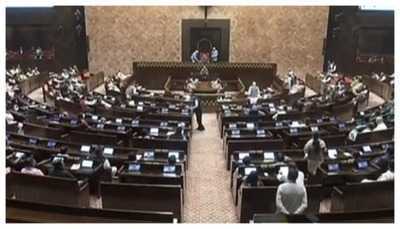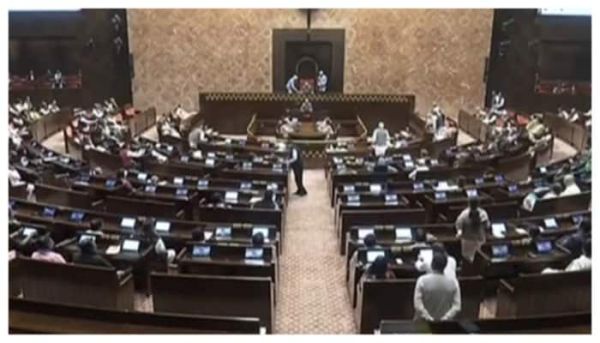
 waqf bill
waqf bill
The central government is set to introduce the Waqf bill in the Lok Sabha on April 2, with senior BJP ministers engaging INDIA bloc leaders ahead of its presentation, sources said.
The proposed legislation has sparked intense debate, with opposition parties raising concerns over its implications on property rights and religious governance.
The bill aims to amend existing laws governing Waqf properties, with the government emphasizing the need for streamlined regulations. However, critics argue that the proposed changes are unconstitutional and unfairly target the Muslim community.
Also read:
The bill, which seeks to restructure the governance of Waqf boards overseeing religious and charitable properties, must be passed by both the Lok Sabha and Rajya Sabha before the Budget session concludes on April 4.
Originally introduced by Kiren Rijiju, the legislation was sent to a joint committee in August 2024 for review. After incorporating recommendations, the Union Cabinet recently cleared the revised bill, setting the stage for its parliamentary debate. Given the political sensitivity of the issue, the government’s outreach to opposition leaders is seen as a crucial move in securing support.
Religious leaders and organizations voice concerns
The Kerala Catholic Bishops’ Council (KCBC) has urged MPs from the state to back amendments to the Waqf Act, calling certain provisions "unconstitutional and unjust." The council highlighted the Munambam land dispute, asserting that the Farook College management had received the land as a gift before selling it to residents. The KCBC stressed that lawmakers must ensure the bill prevents unwarranted claims over private properties.
VP Shuhaib Maulavi, Imam of Juma Masjid in Palayam, Thiruvananthapuram, also raised concerns in his Eid message. He asserted that Waqf properties belong to the faith and should be managed solely by believers. “These assets must be safeguarded and managed by those who adhere to the faith,” he said, warning that the bill could exclude Muslim members from Waqf committees.
Also read:
“If this bill is passed, it will strip the Muslim community of its properties. Not just believers, but all secular-minded individuals must stand against this legislation,” Maulavi urged.
As the government moves forward with the bill, the debate remains highly contentious, with religious leaders, political parties, and community representatives weighing in on its potential impact.